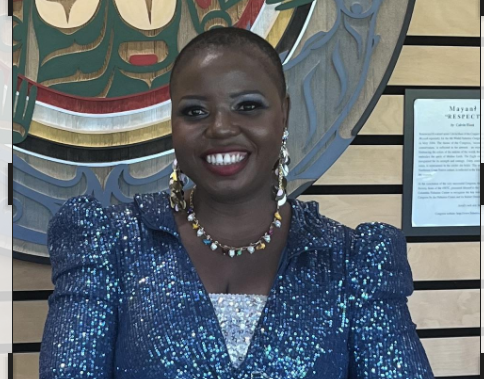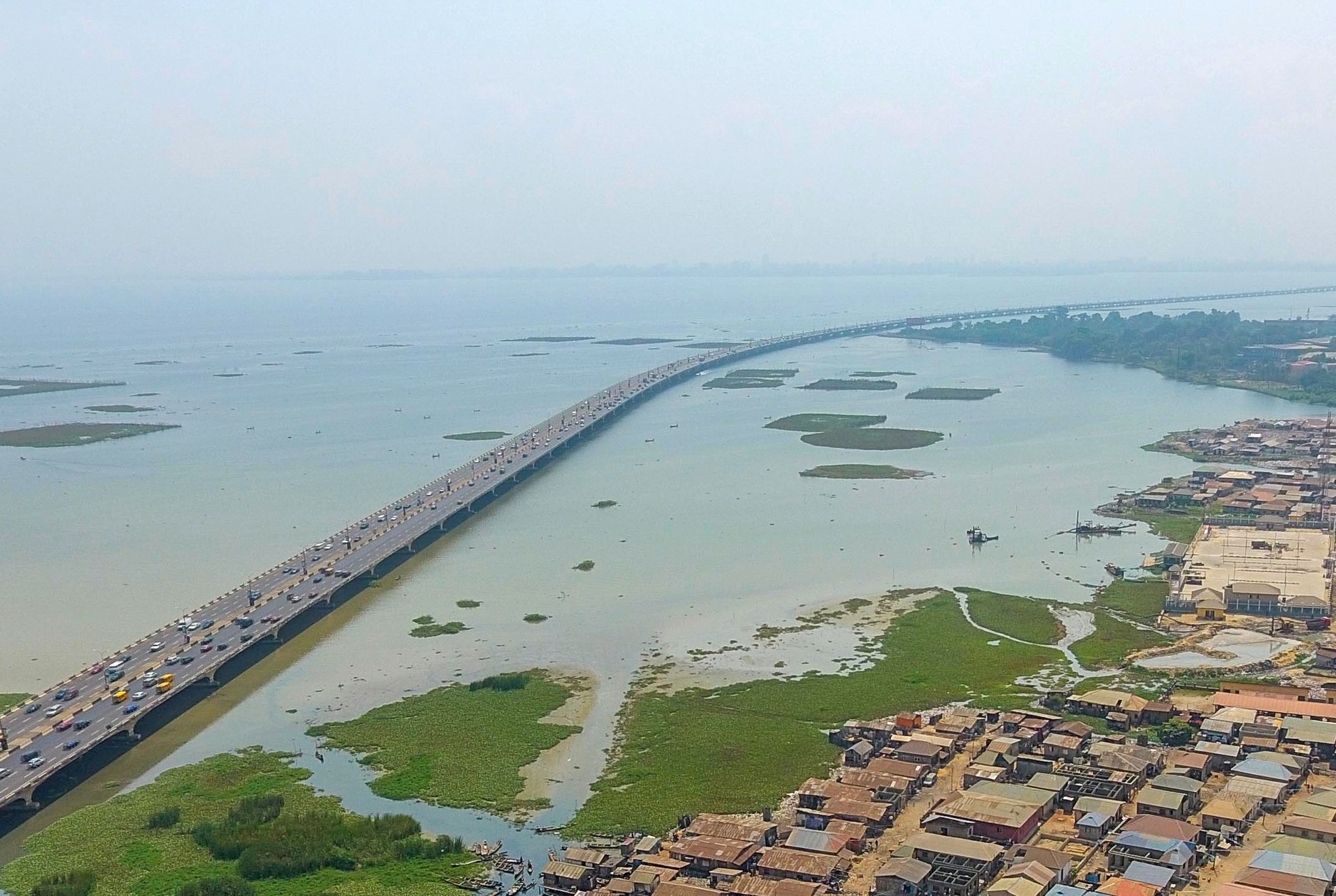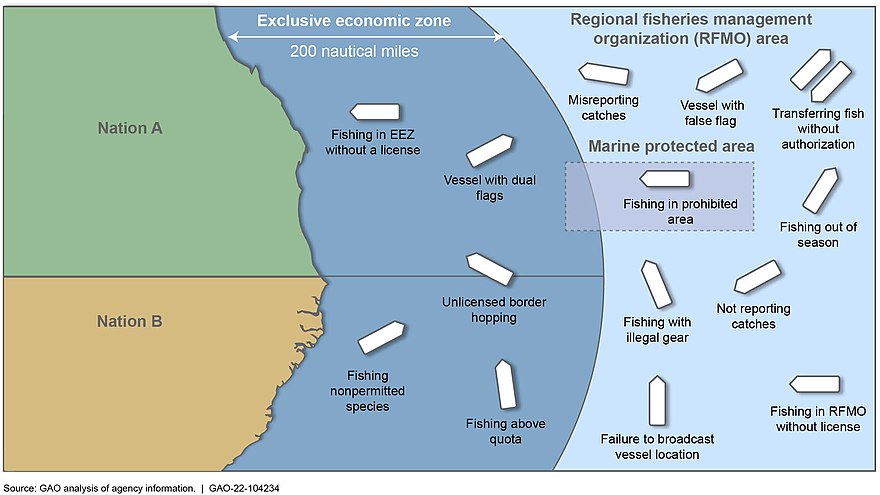We want to highlight some of the people who make the IOF what it is today. We sat down with Ayodele Oloko to talk about her research and the advice she wants to give Black women scientists and people alike. Oloko is a PhD student in the Fisheries Economics Research Unit at the IOF.
Ayodele Oloko Photo credit: unknown Where are you from?I’m from Lagos, Nigeria. I have also lived in Bremen, Germany and in August 2022, I came to Canada. What were your previous studies in?I did my bachelor in Nigeria, at Lagos State University, and I did my master’s at the University of Bremen in Germany. For my Bachelor’s, I studied fisheries and aquatic science, and for my master’s, I studied international studies in aquatic tropical ecology. In my master’s program, you must do one year in class. After that, you must spend another year in a tropical country to learn about the ecosystem, its vulnerability and anything else you want to study. For your tropics program, where did you go? Lagos Lagoon. Photo by: S.aderogba There were very few people who were looking at this, and one of them was Dr. Ekaete Udong. Unfortunately, she passed away, and I figured I could continue from where she left off. So, I went back to Nigeria, and I started asking questions. I said, let’s forget about the government and everyone else. What are you, as a woman, facing? I heard a lot of stories. Most women are illiterate from poverty, lack of funding and facilities. My team and I have a lot of stories from the government and newspapers saying that the government is trying to support women but we’re not sure that’s completely true. Nobody’s really supporting the women, except for a few NGOs. What did you learn from that experience?Through life histories and focus groups, I learned a lot. We published a paper on the challenges and prospects of women fisherfolk in Lagos, and we’re still writing more. I hope to continue this work. It’s actually the topic of my PhD. What is your PhD on?I am doing my PhD on the vulnerability and resilience of fisherfolk to poverty in Cameroon and Nigeria. We’re also looking at the impact of different vulnerabilities and climatic stressors, as well as IUU fishing, which is another thing entirely. We read a lot about IUU — illegal, unreported, and unregulated — fishing and what’s going on, but I wanted to talk to the women and ask them how illegal fishing was impacting them.  Photo by: U.S. Government Accountability Office We have been using different gender frameworks and working to be inclusive about the problem of IUU fishing. This means talking to men and women and going to their families to hear their stories. However, most of the people marginalized in this situation are women, and there are many cases in Nigeria where women are leaving fisheries because most of the fish are being affected due to climatic stressors. Because of these climatic stressors, most people are turning now to IUU fishing, and so when they bring in these illegal fish, the people they are selling to are mostly women. Unfortunately, women — being more marginalized — don’t have the money to buy these fish and so some have to resort to prostituting themselves to fishermen to feed their families. Can you explain this predicament in more detail?Climate change is causing high water temperatures and rising sea levels — among other stressors — which are scaring away the fish. Women can catch fish closer to shore, but the men, having access to better boats, can run after the fish in the ocean, catch more and bring it back to the coast to meet the women who will buy the fish. Some of the fishermen will bargain and ask women to prostitute themselves for the fish. Because men are leaving their families, and even Nigeria, to catch fish, women are now the breadwinners and main supporters of their families. If they don’t have money, how will they survive? This predicament forces some of these women to go into prostitution, creating situations where some of these women now have HIV/AIDS or had the disease beforehand, which contributed to their situation. There are so many socio-economic factors that contribute to these women’s vulnerability. It is so important to have scientists such as yourself, look at these problems and bring awareness to them. What would you say to Black women and scientists who are in your field?Just believe in yourself. When I was an NGO executive, we would go to board meetings, and I’d be the only black woman there. I’ve been to classes where I’m the only woman of color. I’ve been in so many places in my life where I’m the only woman of color. But, what my mother always tells me is that nobody can run away from quality. Try to stay focused. Don’t see yourself as a Black woman, but as someone who can solve the problem. No one will reject quality. You must be confident in yourself. People will have a lot of expectations of you, they’ll judge you for your background, they won’t know where you’re coming from. But you have to know yourself. You have to know yourself so you don’t let other people define you. You have to define yourself — no matter what happens to you, no matter what they think about you, no matter what they say about you. For as long as you can, just keep going, and do not look back at what people say about you. Be confident in your colour, and be confident in yourself. |
Black History Month Every February, people across Canada and the United States come together to celebrate Black History Month to honour the legacies and present work of Black people in their communities and around the world. In Canada today, Black people still face a disproportionate amount of hate, discrimination, and stereotyping, as well as reduced opportunities in the workplace and home. Statistics Canada stated:
At the Institute for the Oceans and Fisheries, we would be nowhere without the hard work and efforts of our Black colleagues and peers. We are very grateful for everyone who has chosen the IOF as a base for their work and careers. We are supported and uplifted by the Black people and communities around us, and we strive to do the same. Not just in February, but all year round. |
Publications
Tags: Ayodele Oloko, Black History Month, Fisheries Economics Research Unit, IOF students, IUU fishing, Rashid Sumaila, tropics, women, women in fishing